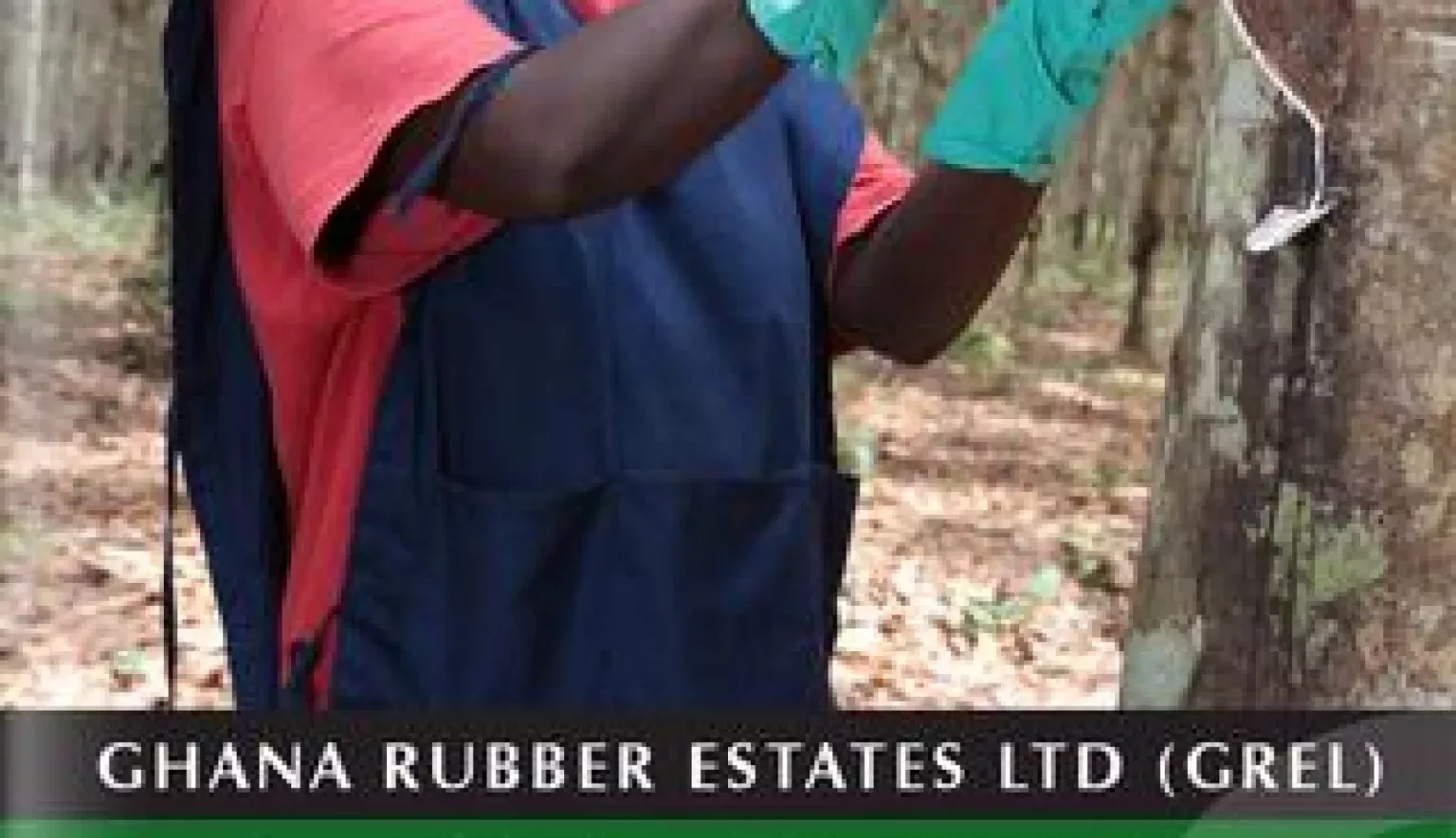Remaining solvent despite facing a global decline in the international price of rubber (SICOM) and steadily increasing operational costs, Ghana Rubber Estates (GREL) has placed a concerted focus on strategic ways to improve efficiencies and increase production for minimal cost in order to maintain its competitive position in a toughening market.
STAYING FLEXIBLE
“2015 was a difficult year, so we have been concentrating on lowering the cost of production while maintaining our high level of quality to meet our sales commitments,” explains Lionel Barre, Managing Director of GREL.
Proud of its locally-recognised status as a truly Ghanaian Company embedded in the country’s industry since 1957 – and led by Barre who has brought his extensive history in the international natural rubber and agri-business sectors to Ghana – GREL is well experienced in handling fluctuating rubber prices and the many ways to adapt to keep its head above water.
CONTINUED CONSOLIDATION
After gaining support from the Government of Ghana and private interest from various tyre companies to rehabilitate Ghana’s natural rubber plantations in the 1990s and early 2000s, GREL has grown to a size of more than 20,000 hectares of estates today, with phase five of its outgrowers project nearing completion.
“We have more than 40,000 hectares of outgrower rubber trees planted and are working to extend our activities to the western, central and Ashanti regions, and have most recently expanded into the eastern region,” says Barre.
Not only has GREL been expanding the amount of land managed by outgrowers, but the Company has been replanting and extending its own estates as part of a €25 million investment.
In support of this, GREL has more than doubled its factory capacity since 2012 and is now able to produce more than 45,000 tonnes a year at peak capacity.
He summarises: “To cope with the declining price of rubber and to achieve return on these investments, we have to work closely with our customers and become more flexible to facilitate their needs. We now have a specialised grade of rubber that we can easily adapt to suit the customer.
“We hope this new product will help to stabilise our production capacities following the expansions we have carried out. For now, we are focusing our investment on upgrading our electricity infrastructure and the water treatment station to enable the factory to settle its capacity optimisation needed by the end of 2016.”
MANAGEMENT DAILY OF PERFORMANCE
Ghana Rubber Estates Limited is to implement an industrial tool called Management Daily of Performance (MDP), designed to provide much needed support in monitoring efficiencies across the board and maintaining zero production downtime.
“Essentially, MDP will become a crucial cost-saving tool that will monitor everything from production, quality, delivery, energy consumption, maintenance and health & safety aspects of our production. This will help us to further improve our delivery and simplify how we can keep an eye on all of these factors,” Barre highlights.
GREL’s ambitious development strategy sees the Company reinvest 80 percent of its profits back into the business in its bid to cement its indigenous reputation. He further details: “There are a lot of possibilities for expansion in Ghana, especially in the country’s central and eastern regions. We are already well established in the western region, so have begun to develop into new parts of the country in the longer term.”
He concludes: “Even though the rubber price has marred growth, we have to remember that it is not just our business, but the whole industry that has been affected. Therefore, we have to continue to identify ways to differentiate ourselves from the competition; we have done so by obtaining the ISO 9001:2008 quality management systems certification, as well as implementing several new techniques in the field and the factory. The crisis has proved a good opportunity to build on our productivity and efficiency through the introduction of new tools like MDP and new machinery, and the subsequent training this requires.
“Much the same as last year, consumers will continue to look towards Africa for the supply of rubber; and maintaining our high quality products, facilities and network of partners will go a long way to achieving a leading position in the market when the market inevitably recovers.”





















